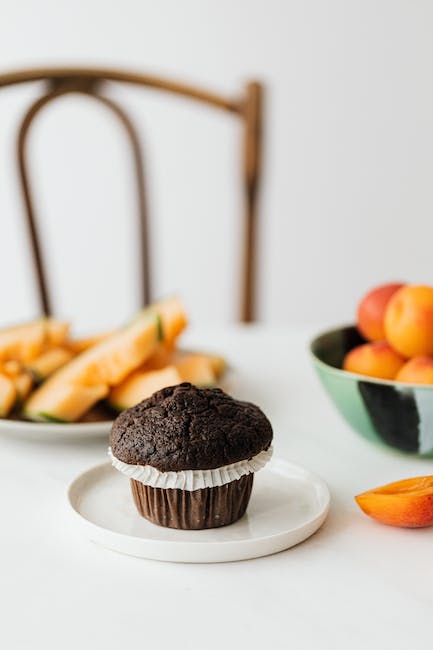Chocolate is a beloved treat worldwide, often consumed for its delicious taste and indulgent qualities. But did you know chocolate may also have potential health benefits, specifically regarding the immune system? In recent years, research has shown that chocolate, particularly dark chocolate, may contain compounds that can help to boost the immune system and promote overall health and wellness. Boosting Immunity with Chocolate: In this essay, we’ll explore the potential benefits of chocolate on immune function and what the current research says about this delicious treat.
The Science of Chocolate and Immune Function
Before diving into the potential benefits of chocolate on immune function, it’s essential to understand the science behind how chocolate may impact our bodies. Chocolate, specifically dark chocolate, contains flavonoids, a type of antioxidant. These flavonoids have been shown to have anti-inflammatory and immune-boosting effects. Studies have found that consuming flavonoid-rich foods like chocolate can help to increase the production of T-cells and natural killer cells, which are critical components of the immune system.
Chocolate also contains zinc, an essential mineral for immune function. Zinc plays a role in the development and operation of immune cells and can help to promote wound healing and support healthy growth and development. Zinc deficiencies have been linked to weakened immune systems, so consuming chocolate in moderation may help ensure that we get enough of this essential mineral.

The Role of Chocolate in Immune Function
While more research is needed to understand chocolate’s potential benefits on immune function fully, evidence suggests that consuming dark chocolate in moderation can help boost the immune system. One study found that participants who consumed a high-flavonoid chocolate drink had increased levels of T-cells and natural killer cells compared to those who consumed a low-flavonoid drink. Another study found that consuming dark chocolate can lead to increased cytokine production, a type of protein that helps regulate the immune system.
However, it is essential to note that consuming too much chocolate, especially with added sugars, can have adverse health effects and should be consumed in moderation as part of a healthy diet. While dark chocolate contains flavonoids and other beneficial compounds, it is also high in calories and fat, so it should be enjoyed in moderation as part of a balanced diet.

Chocolate and Immune Function in Practice
So, what does all of this mean for our health and well-being? Can we consume chocolate to boost our immune system and promote overall health? While the research is ongoing, there are potential benefits to drinking chocolate in moderation.
One way to incorporate chocolate into a healthy diet is to opt for dark chocolate, which contains more flavonoids and less sugar than milk chocolate. In fact, the higher the cocoa content in dark chocolate, the more flavonoids it contains. Aim for dark chocolate with at least 70% cocoa content to reap the potential benefits for immune function.
Additionally, it’s essential to remember that chocolate should be consumed as part of a balanced diet alongside other nutrient-rich foods like fruits, vegetables, and whole grains. While chocolate may benefit immune function, it should not be relied upon as a sole source of nutrition.
Conclusion
In conclusion, while more research is needed to understand the potential benefits of chocolate on immune function fully, there is evidence to suggest that consuming dark chocolate in moderation can help boost the immune system. Chocolate flavonoids and zinc are believed to play a role in immune function, which can help to promote overall health and wellness. Incorporating dark chocolate into a balanced diet can improve our immune system and promote a healthier lifestyle. So go ahead and indulge in a piece of dark chocolate – your immune system may thank you. It’s worth noting that chocolate is not a miracle cure for immune function or overall health. While it may have potential benefits, it should be consumed in moderation as part of a healthy and balanced diet. Overconsumption of chocolate, particularly with added sugars, can lead to adverse health effects like weight gain and increased risk of chronic diseases like type 2 diabetes and heart disease.
Additionally, while dark chocolate has potential health benefits, it’s essential to remember that not all chocolate is created equal. Milk chocolate, for example, typically contains less cocoa and more added sugars, which can negate any potential health benefits. It’s essential to read labels and choose high-quality dark chocolate with a high percentage of cocoa solids.
Overall, while more research is needed to understand the impact of chocolate on immune function fully, there is evidence to suggest that consuming dark chocolate in moderation can have potential benefits. By incorporating chocolate into a balanced and healthy diet, we can enjoy its delicious taste while potentially reaping some health benefits. So savor a piece of dark chocolate, knowing it may just be doing your immune system some good.
FAQs
- Can chocolate help improve immune function? While more research is needed, studies suggest that dark chocolate’s flavanols and other compounds may potentially impact immune function positively.
- What types of chocolate are best for immune function? Dark chocolate with a high percentage of cocoa solids is typically the best option, as it contains more flavanols and other beneficial compounds.
- How much chocolate should I eat to reap potential immune benefits? No set amount of chocolate is recommended for immune benefits, but moderation is key. Consuming dark chocolate regularly, such as a few daily squares, may have potential benefits.
- Are there any adverse health effects of consuming chocolate? Overconsumption of chocolate, particularly with added sugars, can lead to adverse health effects like weight gain and increased risk of chronic diseases like type 2 diabetes and heart disease.
- Can chocolate replace other healthy, immune-boosting foods in my diet? No, chocolate should not replace other healthy foods in your diet. While it may have potential immune benefits, it should be consumed in moderation as part of a balanced and healthy diet that includes a variety of nutrient-dense foods.
- What other health benefits does chocolate have? In addition to potential immune benefits, dark chocolate has been linked to potential benefits for heart health, brain function, and more. It contains antioxidants and anti-inflammatory compounds that may positively impact overall health.
- Should I consume chocolate every day? While drinking a small amount of dark chocolate regularly may have potential health benefits, moderation is key. Chocolate should be consumed as part of a balanced and healthy diet that includes a variety of nutrient-dense foods.
